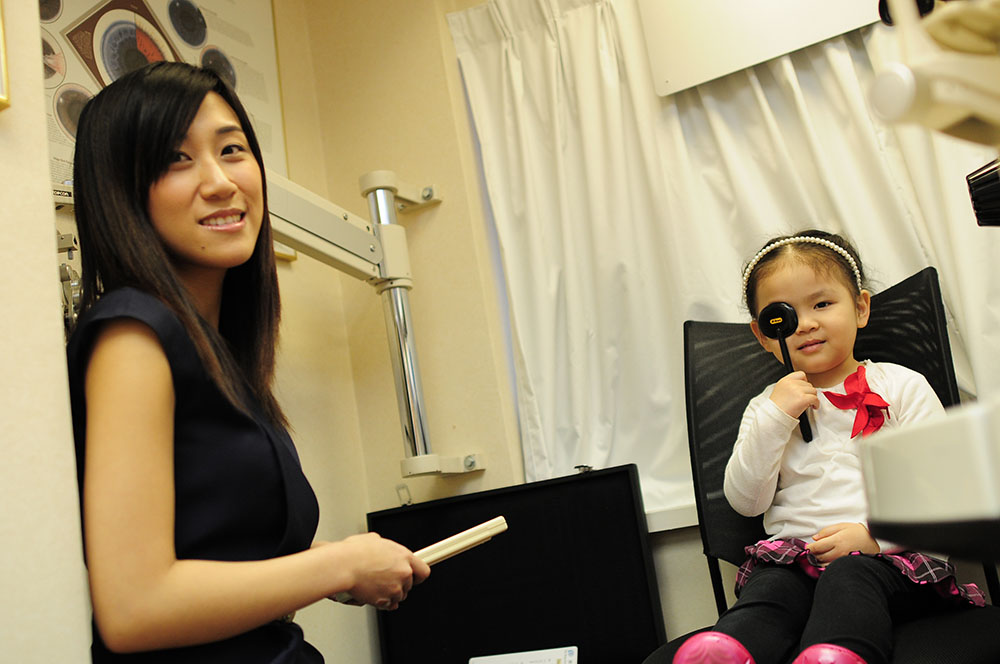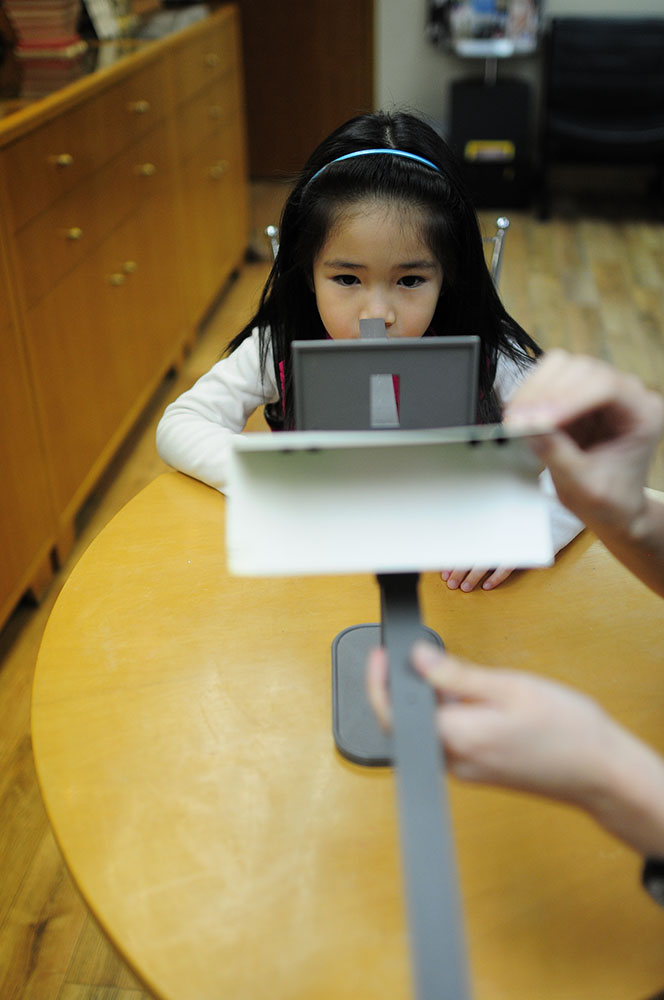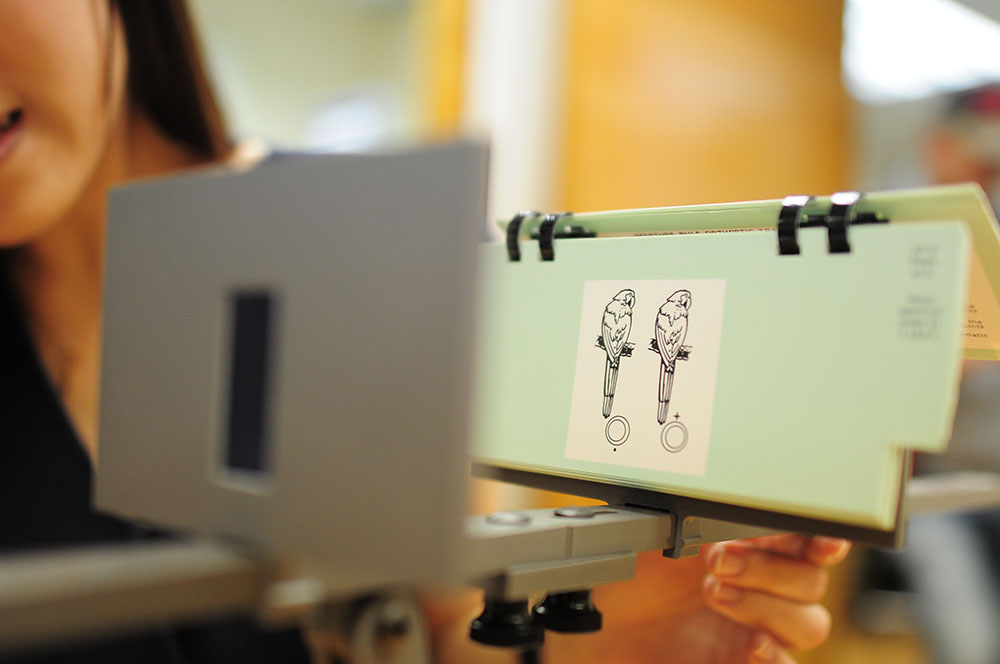
Children Vision Examination and Training

Integrated Eye Examination for Children
Regular eye examination is extremely important to children from pre-school.Sight problems degrades children’s quality of life, lead to learning problems and diminish their self-confidence.
Most common sight problems that affect children
- Shortsightedness
- Longsightedness
- Astigmatism
- Squint
- Lazy eye
Warning signs of sight problems
- Rubbing eyes frequently
- Sitting too close to television or blackboard
- Head tilting
- Shortened reading span
- Complain of headache
Act now to prevent later problems. Identify and correct any problems with sight as early as possible will ensure the best vision for your child. Kids should have their first comprehensive eye exam at age 3.
Tips for kid take the first trip to optometrists
Setting expectations for kids before they go for eye examination. You can:
- Describe possible tasks, such as looking at pictures or reaing so charts.
- Explain that there are no wrong answers to the optometrist’s questions.
- Prepare them for the possibility of eye drops
We provide services for pre-schoolchild and older children. Besides comprehensive eye examination, we also prescribe optical corrections, vision trainings, and appropriate special techniques to slow down progression of shortsightedness.
Vision Therapy
The use of active therapy for the treatment of amblyopia, strabismus and other binocular problems.
What Is Vision Therapy?
Vision therapy is like physical therapy for the visual system, including the eyes and the parts of the brain that control vision. This is a non-surgical and customized program of visual activities designed to correct certain vision problems and/or improve visual skills.
Overall, the goal of vision therapy is to treat vision problems that cannot be treated successfully with eyeglasses, contact lenses and/or surgery alone, and help people achieve clear, comfortable binocular vision.
Problems Vision Therapy Can Correct
- Amblyopia. Also called "lazy eye"
- Strabismus. Also called "Squint" Most effective on intermittent convergence insufficiency
- Accommodative (focusing) disorders. Other research shows near-far focusing skills can be improved with vision training.
- Other problems. Vision problems associated with developmental disabilities and vision problems associated with acquired brain injury (such as from a stroke).



